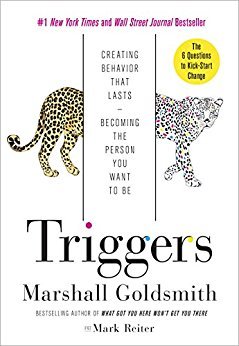More on this book
Community
Kindle Notes & Highlights
Read between
October 9 - October 14, 2020
When we offer our help, we are nudging people to admit they need help.
we possess a limited conceptual resource called ego strength, which is depleted through the day by our various efforts at self-regulation—resisting temptations, making trade-offs, inhibiting our desires, controlling our thoughts and statements, adhering to other people’s rules. People in this state, said Baumeister, are ego depleted.
our self-control is finite and runs down with steady use. By the end of the day, we’re worn down and vulnerable to foolish choices.
The more decisions we’re obliged to make, whether it’s choosing among the dozens of options when buying a new car or reducing the list of attendees at an off-site meeting, the more fatigued we get in handling subsequent decisions.
If we provide ourselves with enough structure, we don’t need discipline. The structure provides it for us.
the more structure I have, the less I have to worry about. The peace of mind more than compensates for whatever I sacrifice in autonomy.
We need help when we’re least likely to get it.
Did I do my best to be happy? 2. Did I do my best to find meaning? 3. Did I do my best to build positive relationships? 4. Did I do my best to be fully engaged?
Adapting Daily Questions into Hourly Questions creates a powerful structure for locating ourselves in the moment.
One other thing: when we decide to behave well and our first steps are successful, we often achieve a self-fulfilling momentum—Griffin
“satisficing”—our tendency to commodify everyday choices because chasing that last bit of improvement is not worth the time or effort.
when our lack of skill at any task dramatically reduces our motivation to do that task, defaulting to some form of good enough is a shrewd option.
Marginal motivation produces a marginal outcome.
A marginal goal begets marginal effort.
The takeaway: If your motivation for a task or goal is in any way compromised—because you lack the skill, or don’t take the task seriously, or think what you’ve done so far is good enough—don’t take it on. Find something else to show the world how much you care, not how little.
People forget your promise, remember your performance.
Who among us hasn’t noticed how in our home environment we behave in ways we’d never tolerate in a work environment?
A professional shoots for the highest standards. An amateur settles for good enough.
We segregate the parts we’re good at from the parts we’re not—and treat our strengths as the real us.
We are professionals at what we do, amateurs at what we want to become. We need to erase this devious distinction—or at least close the gap between professional and amateur—to become the person we want to be.
When we engage in noncompliance, we’re not just being sloppy and lazy. It’s more aggressive and rude than that. We’re thumbing our noses at the world, announcing, “The rules don’t apply to us. Don’t rely on us. We don’t care.” We’re drawing a line at good enough and refusing to budge beyond it.
“You only control how you behave.”
That’s how change begins—with a commitment to improve and notifying people of your plan.
“I wouldn’t go eighty percent of the way,” Nadeem said. “I’d go a hundred percent. I learned that if I change my behavior, I change the people around me. If I’d gone all in, we’d be friends even sooner.”
When we dive all the way into adult behavioral change—with 100 percent focus and energy—we become an irresistible force
We waste time on issues we don’t feel that strongly about.
We wish instead of do.
We limit ourselves with rigid binary thinking.
Mostly, we suffer a failure of imagination.
the six Engaging Questions: 1. Did I do my best to set clear goals? 2. Did I do my best to make progress toward my goals? 3. Did I do my best to find meaning? 4. Did I do my best to be happy? 5. Did I do my best to build positive relationships? 6. Did I do my best to be fully engaged?
We rarely blame ourselves for mistakes or bad choices when the environment is such a convenient fall guy.
Honestly assessing the interplay in our lives between these two forces—the environment and ourselves—is how we become the person we want to be.
The first objective is awareness—being awake to what’s going on around us.
The second is engagement.
We might not know what to expect—the triggering power of our environment is a constant surprise—but we know what others expect of us. And we know what we expect of ourselves.
Awareness is a difference maker. It stretches that triggering sequence, providing us with a little breathing space—not much, just enough—to consider our options and make a better behavioral choice.
“Am I willing at this time to make the investment required to make a positive contribution on this topic?”
The world around us changes and we change with it, if only because it’s easier to go with the flow.
When we prolong negative behavior—both the kind that hurts the people we love or the kind that hurts us in some way—we are leading a changeless life in the most hazardous manner.
think about one change, one triggering gesture, that you won’t regret later on. That’s the only criterion: you won’t feel sorry you did it.


